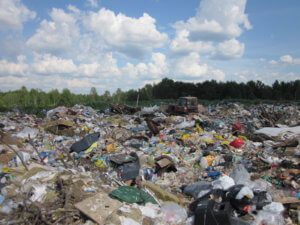
A new bill amending some laws regarding the public regulation of financial service market (No. 8415) would not reduce the number of fair market players, but it would expand powers of the national commission for financial service markets regulation, according to lawyers polled by Interfax-Ukraine.
“The non-banking financial market, which actual neglect is currently at some stage discrediting the NBU’s impressive work on streamlining and cleaning up the banking sector, will obtain a regulator with the stronger powers in the person of the national commission for financial service markets regulation,” Adviser to the Asters law firm Diana Holanova said.
“At the same time, the situation that has developed in the financial market certainly requires taking measures to clean it up, bringing its participants to European standards. The reduction of participants cannot affect the financial market negatively on the condition that this reduction will be carried out with the aim of identifying the structures of owners of commercial banks and taking adequate measures, insolvent insurance companies and other participants, creating risks for consumers of financial services and financial markets in general,” she said, adding that “not all the provisions of the bill guarantee the neutrality of possible measures, underscoring the need for their revision.”
In turn, Senior Lawyer of the Evris law firm Kateryna Breduliak said that the rules of the current law on financial services and public regulation of financial services markets have long been outdated, not to mention that some financial service markets use specialized laws, in particular, laws on insurance, credit unions, and private pension provision. Thus, the introduction of changes to the current legislation of the non-banking financial market would streamline legislation in this area.
“The bill will not affect the reduction in the number of fair market players. The legislative initiative is aimed at making changes to the framework law, since the requirements are duplicated in several laws. If it is presumed that all operating non-banking institutions comply with the law, the adoption of the law will not affect the number of players on the non-banking market in the future. If it is a question of those financial institutions that avoid taxation, then, with changes, the activity of fictitious financial institutions will be stopped,” she said.
Breduliak said that, in accordance with the bill, in addition to measures of influence and sanctions, if the circumstances and risks affecting the solvency of a market player are negative, the national commission will be able to apply corrective measures. These measures are recommendatory in nature and are not binding on the market player, but if applied, the financial service market player automatically falls under the suspicion of the commission.
Commenting on the effectiveness of the supervision mechanisms of players in the non-banking financial market prescribed in the bill, Breduliak said that the regulator plans to implement public control measures in the form of planned inspections, unscheduled inspections and unscheduled field inspections, and the bill determines the procedure, deadlines and rules for conducting these inspections.
“Preventive and corrective measures will certainly contribute to the observance of the requirements of legislation by players of the non-bank financial market,” the lawyer said.
At the same time, according to the expert, at present not all players of the non-banking market are ready to confirm the transparency of the financial services provided.
“In any case, equal conditions for both banks and non-bank financial institutions will only contribute to competition in their provision. The regulator should rule out the sudden disappearance of financial market players, since in the end the consequences and losses are borne by consumers,” she said.

Hereditary Prince of Liechtenstein Alois advocates the increase in investment of his country in the Ukrainian economy. “We talked about expanding economic cooperation. There are Liechtenstein firms that are already working in Ukraine… We talked about the possibility of developing this cooperation and attracting more Liechtenstein investments to Ukraine,” the prince said in a statement to the press after a meeting with Ukrainian President Petro Poroshenko in Kyiv. He said that in recent years Liechtenstein participated in various projects in Ukraine – both in supporting the reform process and in the humanitarian sphere.
In turn, Poroshenko said that half of the investments that come from Liechtenstein to Ukraine are directed to industry. “This shows the long-term and strategic nature of Liechtenstein investors’ plans for Ukraine,” the head of state said.

Ukraine in January-May of this year exported electricity worth $137.168 million, in particular in May for $27.837 million. According to the State Fiscal Service, Hungary received electricity worth $85.312 million, Poland for $32.575 million, Moldova for $15.629 million, other countries for $3.652 million.
Thus, in monetary terms exports of Ukrainian electricity in January-May 2018 increased by 25% compared to the same period in 2017 ($109.749 million). In addition, Ukraine for this period imported electricity for $658,000 (from the Russian Federation for $629,000, from Belarus for $28,000, and from Moldova for $1,000).

The modernization of the waste management infrastructure in accordance with the National Waste Management Strategy until 2030 requires more than EUR 3 billion of investments during 2019-2030, expert for waste management Mykola Doichinov has said at the conference “New Waste Management Policy is a Way to a Circular Economy” in Kyiv. According to the expert, calculations were carried out as part of the development of the National Waste Management Plan until 2030. According to the expert, as a result of the new waste management policy, tariffs for garbage disposal for the population will grow from EUR 0.6 per month in 2020 to EUR 1.4 per month in 2030.
At the same time, the expert stressed the implementation of the new strategy requires intensification of cooperation with international financial donors. At the same time, the state should also extend the responsibility of producers to cover the costs of garbage collection and sorting.
In addition, according to Doichinov, it is necessary to differentiate environmental tax on landfills that do not meet modern environmental requirements. As a result, the use of such landfills will become expensive, while the state will be able to send additional funds received from the tax for the renovation of these territories, the expert said.